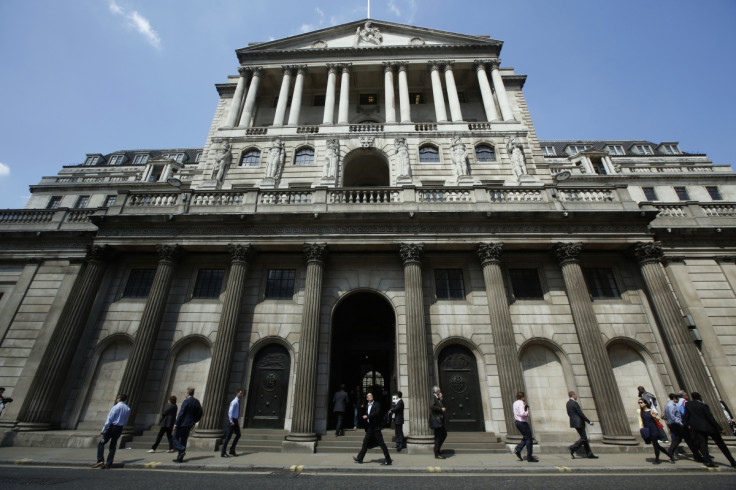UK Interest Rates Hike 'Later Not Sooner' Despite Strong Economic Recovery

A hike in interest rates by the Bank of England is likely to come later rather than sooner, despite the UK economic recovery being the strongest of any G7 state.
That is according to the quarterly ITEM Club report for summer 2014 by business services giant Ernst & Young (EY).
EY expects the UK economy to grow by 3.1% in 2014 and by 2.5% in 2015. And it said a healthy labour market – which has seen employment hit record-highs – is putting the economy in a "sweet spot".
The healing UK economy and positive jobs data has led markets to anticipate an imminent rise in the Bank of England's base rate from its all-time-low of 0.5%.
Mark Carney, governor of the Bank of England, said in a speech that a rise in interest rates may come sooner than expected. He later said this was to jolt markets, which he thought were not reacting to improving economic data and were becoming complacent about low rates.
But now it looks as if the markets have gone too far the other way in their expectations, said EY.
"The markets are expecting a base rate rise by the end of this year, following the governor's recent warning," said EY's report.
"However, the outlook for interest rates remains uncertain, with low inflation, the strong pound and the risk of deflation in the eurozone pointing to a decision to keep them unchanged.
"Also, uncertainty about interest rates will tend to make households and companies hold back from borrowing to finance large expenditures. Assuming that wage rises remain subdued, all these factors should help to keep interest rates on hold until the first quarter of 2015."
There are a number of concerns below the improving headline economic data.
Though employment is rising to new highs and the unemployment rate is slipping, underemployment – those in work but who want more hours – is rife. And many of those in work are self-employed and on precarious incomes.
Moreover, regular pay is rising by 0.7% on average, well below price inflation of 1.9%, meaning wages are in real-terms decline.
These factors, coupled with weak productivity, have deterred the Bank of England from a rates rise so far. But they are all expected to be improving as the economy enters 2015.
© Copyright IBTimes 2025. All rights reserved.






















